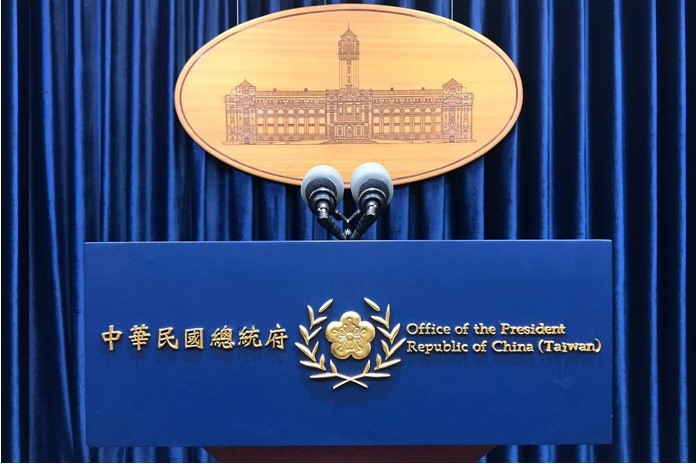News & activities
 News releases
News releases
On January 8, Presidential Office Spokesperson Xavier Chang (張惇涵) said the Presidential Office offers a warm welcome to the delegation from Tuvalu, Taiwan's ally in the Pacific, led by Parliamentary Speaker Samuelu Penitala Teo, accompanied by his wife. The delegation arrived in Taiwan that morning to begin a five-day visit until January 12 and will meet with President Tsai Ing-wen at the Presidential Office on January 9.
Spokesperson Chang stated that Taiwan and Tuvalu have for many years enjoyed close cooperation in areas including medical care, agriculture, education, information and communications technology, and clean energy, and that Tuvalu has long supported Taiwan's international participation. The spokesperson added that over the past few years, our two countries have conducted exchanges and cooperated in responding to climate change, and that our bilateral relationship has remained strong and friendly since diplomatic ties were established 44 years ago.
This is Speaker Teo's second visit to Taiwan, Spokesperson Chang said, and his first leading a delegation as parliamentary speaker. The delegation also includes Members of Parliament Mackenzie Kiritome and Fatoga Talama. Spokesperson Chang noted that this marks another high-level visit from Tuvalu just six months after a state visit by Prime Minister Kausea Natano and his wife last September, demonstrating Tuvalu's unwavering and consistent support for Taiwan across the executive and legislative branches of government.
Spokesperson Chang also said that Taiwan and Tuvalu are maritime nations that share the universal values of democracy and freedom, and that through this visit, Taiwan hopes to continue deepening friendly bilateral cooperation as well as our joint work on post-pandemic economic recovery and global sustainable development.









